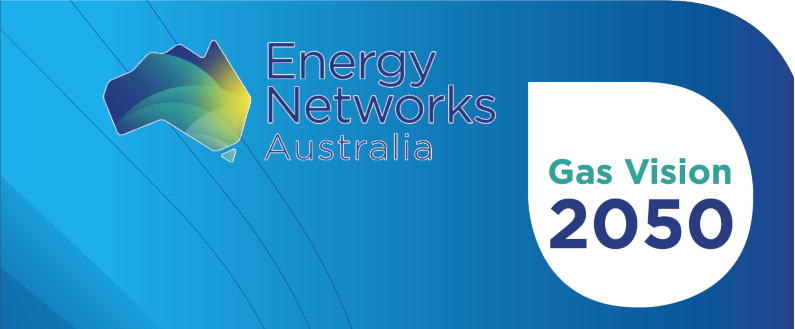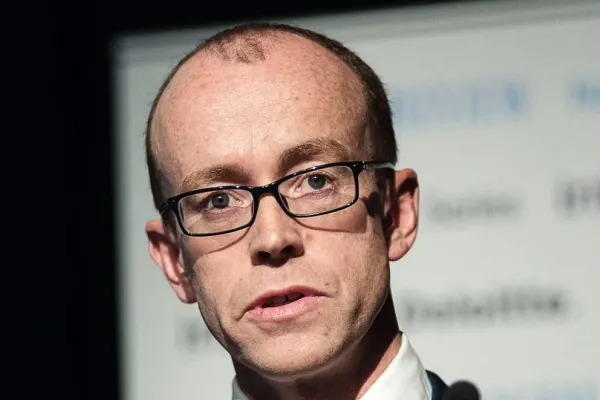
Fossil fuel industry lobby group (Energy Networks Australia) unmasked.
The CEO of the Energy Networks Association (ENA), Andrew Dillon, would like to have you believe that his organization (which represents gas distributors, gas pipelines and electricity networks across Australia) is all about electricity supply for the good of consumers and not about preserving the value of Australia's gas pipelines and distribution networks. However, by looking at ENA's membership, it is clear that they are up to their neck in fossil gas dollars. Which may explain why they take such a negative position on rooftop solar, attempting to halve the amount of solar PV the grid will accept in their National Grid Connections Guidelines which is a poorly disguised gas industry lobby document.

Image1: Energy Networks Australia CEO wants you to believe that the gas industry doesn't dictate ENA policy
So who makes up the ENA’s membership?
From ENA's website we find they list 24 companies, as their membership. When you delve into just who these companies are you find out that they can be divided into five main categories, with just three massive players from Asia controlling most of the companies on ENA's list. The five categories of companies are:
- Australian government owned or part government owned.
- Those controlled by a trust or mutual organization for its members
- Foreign owned, massive monopoly energy suppliers from Asia
- Local listed infrastructure vehicles providing cover to the foreign owned monopolies.
- Gas pipeline and/or distribution companies.
There are 11 electricity company members that fit into category 1 or 2 (Australian government or mutual organization owned). They are: Ausgrid (NSW), Energex and Ergon (QLD), Powerlink (QLD) Endeavour (NSW) Essential (NSW) Evo Energy (ACT) Power and Water (NT) Tasnetworks (TAS), Western Power (WA), Horizon (WA) and Unison (NZ).
It is fair to say that these companies are the least activist members of Energy Networks Australia.
The other 13 members are either gas companies or they are owned by companies that have very significant interests in gas (billions of dollars under management).
The three major international companies with stakes in these 13 member companies are some of the biggest in the world, they are: CKI group in Hong Kong which controls 7 (or 30%) of ENA's listed member companies. CKI's ownership includes 51% of Citipower, Powercor and SAPN, it owns AGIG which covers its ownership of Multinet gas and AGN gas (formerly Investra). CKI shares ownership of United Energy with State Grid of China and Singapore Power (the two other international companies); who also control Ausnet and Jemena, the other two electricity distributors in Victoria which are also gas pipeline and gas distribution companies.
Showing just how much control these massive overseas companies want of Australia’s gas and electricity infrastructure, both featured together in the $16 billion-dollar bidding war to get control of Ausgrid; the nation’s most important electricity network. CKI also tried to takeover APA the last remaining gas company, of any significant size, not controlled by the three foreign companies. APA itself has very strong links to CKI’s Australian Gas Network assets which it operates on behalf of CKI. If you include APAs close ties to CKI, then over $20 Billion dollars of gas pipeline and distribution companies interests are represented in ENA’s membership.
Then we have Spark infrastructure, a company that has a 49% stake in SAPN, Citipower and Powercor; providing cover to CKI which otherwise would stand out as owning all of Victoria’s and South Australia’s electricity networks.
Other notable gas and gas pipeline companies in ENA's membership include ATCO whose pipelines distribute gas to over 770,000 customers in Western Australia.
In conclusion Energy Networks Australia is clearly controlled by companies that have billions of dollars to lose if domestic householders in Australia quit gas and move to solar and batteries. These foreign interests, (namely CKI, Kong, Singapore Power and State Grid of China) who control ENA want solar contributions to the electricity networks halved in order to save the value of their gas networks from the massive write downs that would occur if a widespread shift to household solar and batteries takes place.
Australian politicians, the media and the public at large need to wake up to this threat to our sovereignty and to our destiny as a renewable energy superpower. ENA is running a campaign against solar in the interest of its billion dollar gas industry members. Members that want Australian's to keep the money flowing to them, for their high priced gas, rather allowing them to keep that money for themselves by going solar and all electric.

